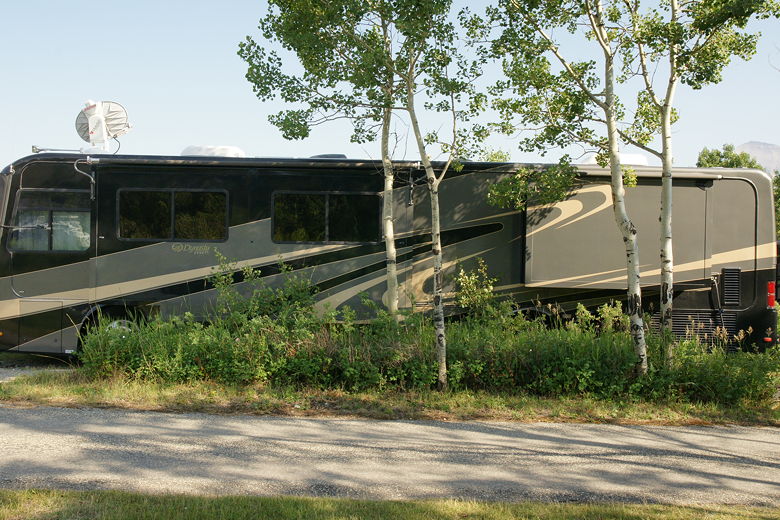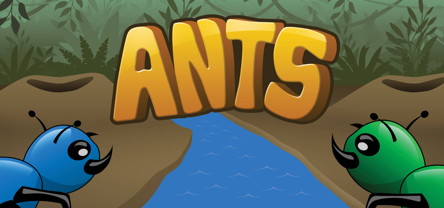|
We survived the frigid night, but I did notice lots of condensation on the inside of the rain
fly. Thankfully, it started to warm quickly in the morning. We got out of the tent, but
sadly the big RV was still there, blocking our view.
Today we'd be doing a hike starting
at Logan Pass. I'd read that the parking lot there gets full and the shuttle bus is highly
recommended. So we made the short drive to the visitor's center, getting onto the free
shuttle at 10:20am.

The view from our camp site
The shuttle finally left around 10:35am, and once we reached Logan Pass we did the hike
to
Hidden Lake Overlook. We finished the hike at 3:30pm, but had to wait until 4pm for a shuttle bus to take
us back down to the St. Mary visitor's center.
We returned to camp for an early dinner so that we could finish in time for the pika talk.
Despite it being sunny most of the day, the forecast was for a chance of thunderstorms in
the afternoon/evening. Well, as we finished dinner and prepared to go, we could see
ominous storm clouds approaching from the north. So I made the conscious decision to drive
to the visitor's center instead of making the short walk, because of the threat of rain.
We arrived in time for the talk, a presentation by Lucas Moyer-Horner, a graduate student
at the University of Wisconsin doing a study on the pika. It was a fascinating talk about
the pika and how it relates to climate change. He noted that the habitat for pika is
pretty much confined to talus fields. That habitat includes the Sierra Nevada, so I'm
puzzled by the fact that in all my years of hiking in the Sierra Nevada, I don't recall
ever seeing a pika. In a short trip to the Rocky Mountains, I saw several. Next time I'm
in a Sierra talus field, I'll be on the lookout. Another interesting fact: there is proposed
legislation to classify the pika as an endangered species because of climate change. If passed,
it would be the first to be declared endangered for that reason.
After the talk, we took our kids over to the ranger and asked about the junior ranger program.
The ranger gave them booklets which they had to fill out to get a badge. We took the booklets
with us back to camp. When we arrived, it hadn't started to rain yet but it was obvious
from looking at the sky and feeling the humidity in the air that rain was imminent.
We quickly guyed the tent, put the firewood into the car to keep it dry (no time for a campfire
tonight), and quickly brushed
our teeth. Moments later, the first drops began to fall, and soon after that we were all in the
tent. Minutes later, the rain started to come down. Hard. But we were happy and dry in our
tent. We helped the kids with the junior ranger booklets as the rain continued to come down,
accompanied by thunder and lightning. I found the sound quite soothing and managed to fall
asleep quickly.
| 


